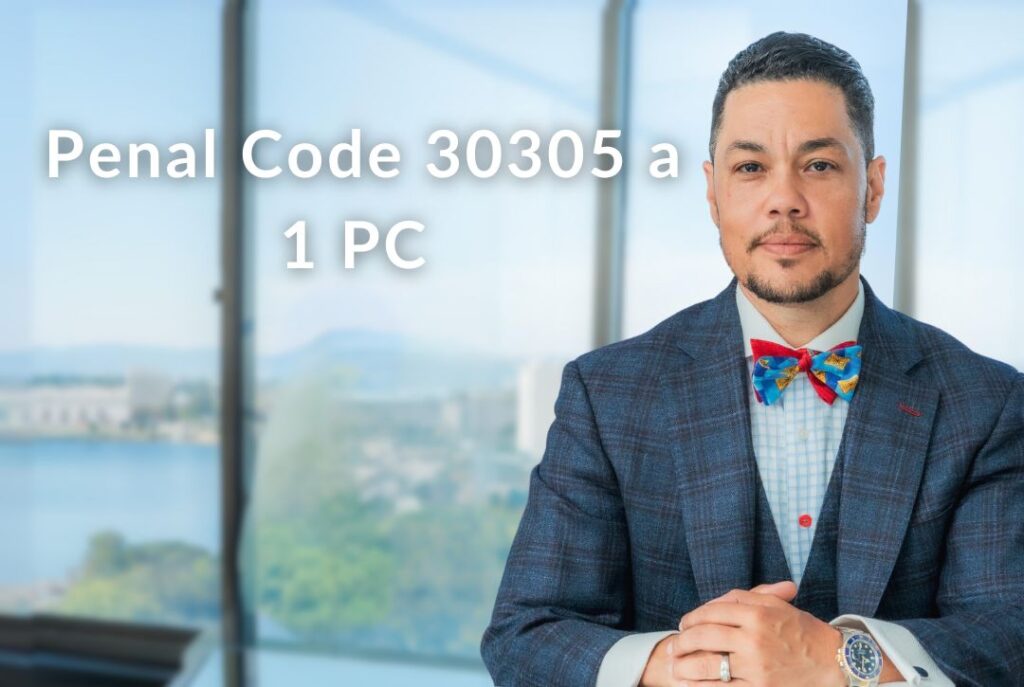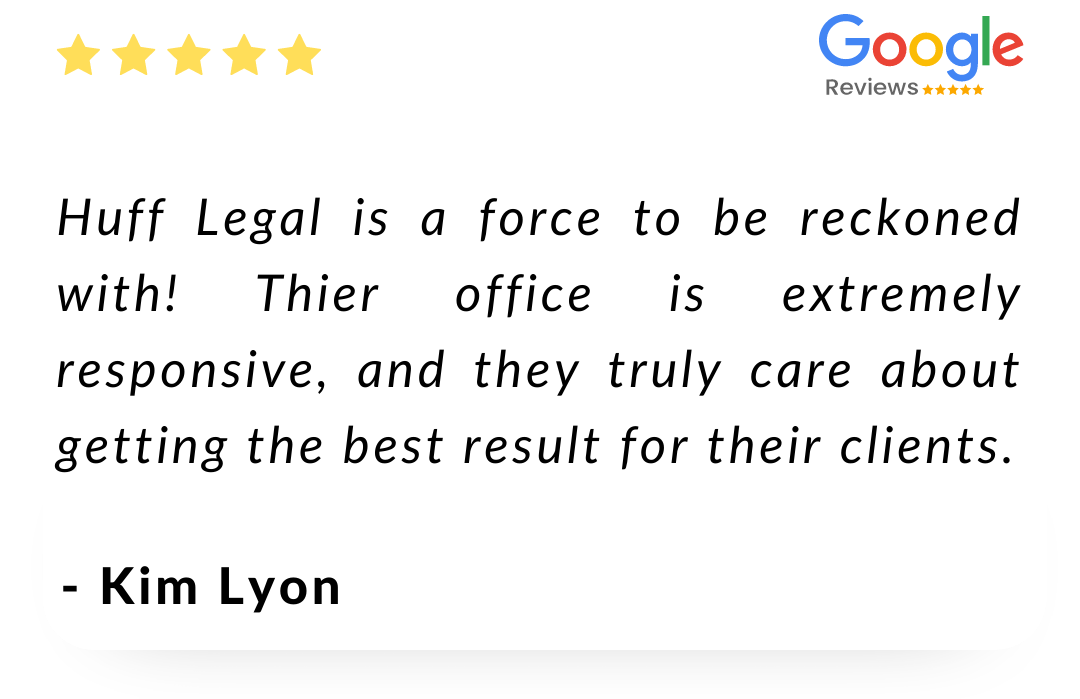Felon in Possession of Ammunition - Penal Code 30305 a 1 PC
Felon in Possession of Ammunition - Penal Code 30305 a 1 PC
In California, Penal Code 30305a 1 PC and Penal Code 29800 PC work together to restrict convicted felons from possessing firearms and ammunition. Under PC 30305(a)(1), it is illegal for a felon to own, possess, or have custody of ammunition.
Violating either of these statutes can lead to serious legal consequences, compounding the challenges you may already face as a convicted felon. Understanding the specifics of PC 30305(a)(1) and PC 29800 is crucial to avoid further legal trouble and protect your rights.
This article will explain the elements of these crimes, potential penalties, and available defenses.
Overview of PC 30305(a)(1)
To convict someone under PC 30305(a)(1), the prosecutor must prove several key elements of the crime beyond a reasonable doubt. These elements are outlined in California Criminal Jury Instructions 2591 and include the defendant’s ownership, possession, or custody of ammunition, knowledge of possessing the ammunition, and prohibited status due to a prior criminal conviction or mental illness.
Who is affected by PC 30305(a)(1)?
You may be prohibited from possessing ammunition under this law if:
- You’ve been convicted of any felony in California, another state, or under federal law
- You’re addicted to narcotics
- You have two or more convictions for brandishing a firearm (PC 417)
- You’ve been convicted of a misdemeanor related to domestic violence
- You’ve been diagnosed with a mental illness
- You’re under 18 years old
- Understanding these restrictions is crucial to avoid unintentional violations and further legal troubles.
Request a Free Consultation
Elements of the Crime
To convict someone under PC 30305(a)(1), prosecutors must prove specific elements beyond a reasonable doubt. Let’s break down these elements to help you better understand the law.
What is Ammunition?
Under PC 30305(a)(1), “ammunition” has a broad definition. It includes:
- Bullets
- Cartridges
- Clips
- Magazines
- Autoloaders
- Speedloaders
- Any projectile that can be fired from a firearm capable of causing injury or death
This comprehensive definition covers all types of ammunition, regardless of the firearm it’s intended for. It’s important to note that even possessing components that could be assembled into ammunition can potentially violate this law.
What is Possession?
In the context of PC 30305(a)(1), “possession” doesn’t just mean having ammunition on your person. It also includes:
- Having ammunition under your control
- Storing ammunition in a place you have access to
You don’t need to have physical ammunition with you to be in violation of this law. You could be considered in possession if you have control over its whereabouts or access to it.
Prohibited Persons
The law specifically targets individuals who are prohibited from owning or possessing firearms. This includes:
- Convicted felons
- Those addicted to narcotics
- Individuals with multiple convictions for certain violent offenses
- People convicted of domestic violence misdemeanors
- Those diagnosed with certain mental illnesses
- Minors under 18 years old
If you fall into any of these categories, it’s crucial to understand that you’re also prohibited from possessing ammunition. This restriction applies even if you don’t own or possess a firearm.
Understanding these elements can help you navigate the complexities of PC 30305(a)(1) and avoid potential violations.
Suppose you’re unsure about your status or have questions about this law. In that case, it’s always best to consult with a qualified attorney who can provide personalized guidance based on your specific situation.
What are the Penalties for PC 30305(a)(1)?
Violating PC 30305(a)(1), which involves illegal possession of ammunition, can lead to significant legal consequences. This offense is considered a “wobbler,” meaning it can be charged as either a misdemeanor or a felony, depending on the specifics of the case and your criminal history.
- Misdemeanor: If convicted as a misdemeanor, you could face up to one year in county jail and a maximum fine of $1,000.
- Felony: If charged as a felony, the penalties increase to 16 months, two years, or three years in state prison, along with a fine of up to $10,000.
Minimizing Penalties
To minimize these penalties, it is crucial to work with a skilled attorney who can negotiate with prosecutors, challenge evidence, and potentially reduce charges. Factors such as your criminal history, the circumstances of the arrest, and any mitigating factors can influence the outcome.
What are the Penalties for PC 30305(a)(1)?
Violating PC 30305(a)(1), which involves illegal possession of ammunition, can lead to significant legal consequences. This offense is considered a “wobbler,” meaning it can be charged as either a misdemeanor or a felony, depending on the specifics of the case and your criminal history.
- Misdemeanor: If convicted as a misdemeanor, you could face up to one year in county jail and a maximum fine of $1,000.
- Felony: If charged as a felony, the penalties increase to 16 months, two years, or three years in state prison, along with a fine of up to $10,000.
Minimizing Penalties
To minimize these penalties, it is crucial to work with a skilled attorney who can negotiate with prosecutors, challenge evidence, and potentially reduce charges. Factors such as your criminal history, the circumstances of the arrest, and any mitigating factors can influence the outcome.

As Seen On












What Are the Defenses for PC 30305(a)(1)?
If you are accused of violating PC 30305(a)(1), several defenses may be available to help you fight the charges.
You Were Justified in Possessing the Ammunition
If you were unaware that a murder had been committed or had no knowledge of the perpetrator’s involvema
You might have had a legitimate reason for possessing the ammunition, such as intending to turn it over to law enforcement. Demonstrating this intent can be a valid defense.
You Did Not Possess the Ammunition
Possession requires both knowledge and control. You might not be guilty if you were unaware of the ammunition’s presence or it wasn’t under your control. For example, if someone else placed the ammunition near you without your knowledge, this defense could apply.
ent, you might be able to argue that you cannot be held responsible as an accessory to the crime. Lack of knowledge is a potential defense, as being an accessory requires awareness of the murder.
There Was a “Mistake of Fact”
Due to a misunderstanding, you might have believed you were legally allowed to possess the ammunition. While ignorance of the law isn’t a defense, a genuine mistake of fact regarding your eligibility might be.
The Police Violated Your Rights and Conducted an Unlawful Search and Seizure
If the police discovered the ammunition through an illegal search or seizure, violating your Fourth Amendment rights, the evidence might be inadmissible. This could lead to a dismissal of the charges.
These defenses highlight the importance of consulting with an experienced criminal defense attorney who can evaluate your case and recommend the best strategy. Your attorney can also negotiate with prosecutors, potentially leading to reduced charges or even a dismissal.
Related Crimes
Several crimes are related to the illegal possession of ammunition under Penal Code 30305(a)(1) P.C. Understanding these related offenses can help you grasp the broader legal landscape and the potential implications of your actions.
- Penal Code 417 PC – Brandishing a Weapon: This involves displaying a firearm or other deadly weapon in a threatening manner. If you have multiple convictions under this statute, you may also be prohibited from possessing ammunition.
- Penal Code 29800 PC – Felon in Possession of a Firearm: This law prohibits felons from owning or possessing firearms. It is closely related to PC 30305(a)(1) because both laws aim to prevent individuals deemed dangerous from accessing weapons and ammunition.
- Penal Code 25850(a) P.C. – Carrying a Loaded Firearm: This offense involves carrying a loaded firearm in public, which can lead to additional charges if you’re also found with ammunition.
- Penal Code 25400 PC – Carrying a Concealed Weapon: Carrying a concealed firearm without a permit is illegal and can compound charges if you’re also in possession of ammunition.
- Penal Code 30315 PC – Possession of Armor-Piercing Bullets: This statute makes it illegal to possess armor-piercing ammunition, which is considered more dangerous and can lead to enhanced penalties.
- Penal Code 30210 PC – Possession of Bullets with an Explosive Agent: Similar to armor-piercing bullets, possessing explosive ammunition is a separate offense with its own penalties.
What Clients Say About Us





Schedule Your Free Consultation Today
Felon in Possession of Ammunition
Being a felon in possession of ammunition is a serious offense under Penal Code 30305(a)(1) P.C. This law is designed to prevent individuals who are deemed a risk from accessing ammunition, thereby reducing the potential for violent incidents.
If you are a convicted felon, you are prohibited from possessing ammunition. This includes any bullets, cartridges, magazines, or other components that can be used in a firearm. The law is strict, and even unintentional possession can lead to charges.
Legal Consequences
Violating PC 30305(a)(1) can result in either misdemeanor or felony charges, depending on the specifics of your case. A misdemeanor conviction can lead to up to one year in county jail and a fine of up to $1,000. A felony conviction carries more severe penalties, including 16 months, two years, or three years in state prison and a fine of up to $10,000.
Importance of Legal Representation
Given the serious nature of these charges, it’s crucial to seek experienced legal representation if you’re accused of being a felon in possession of ammunition. A skilled attorney can evaluate your case, identify potential defenses, and work to minimize the impact on your life. Whether it’s negotiating with prosecutors or challenging the evidence, having a knowledgeable advocate on your side can make a significant difference in the outcome of your case.
Obstruction of Justice
If you knowingly hinder or obstruct the investigation, arrest, or prosecution of the murderer after the crime has been committed, you may be charged with obstruction of justice. This can include concealing evidence, providing false information, or intimidating witnesses.
Tampering with Evidence
If you alter, destroy, conceal, or tamper with evidence related to the murder with the intent to hinder the investigation or prosecution, you can be charged with tampering with evidence. This offense involves interfering with the proper administration of justice.
Get the Legal Help You Need
Understanding the implications of Penal Code 30305(a)(1) P.C. is crucial for anyone with a felony conviction. Being found in possession of ammunition can lead to severe penalties, but knowing your rights and the defenses available can help you navigate these challenges.
At Huff Legal, we understand the complexities of firearm and ammunition laws and are committed to providing you with the best possible defense. Our experienced attorneys can guide you through the legal process, ensuring your rights are protected every step of the way.
If you’re facing charges under PC 30305(a)(1), contact Huff Legal today for a confidential consultation. Let us help you achieve the best possible outcome for your case.
FAQ
Can a convicted felon be around ammunition?
No, convicted felons are prohibited from possessing or controlling ammunition. This includes bullets, cartridges, or related components, regardless of whether they own a firearm.
What is the P.C. for a felon in possession of ammo?
The Penal Code for a felon in possession of ammunition in California is PC 30305(a)(1). This statute makes it illegal for individuals prohibited from owning firearms to possess ammunition.
What is the federal statute for felonies in possession of ammunition?
The federal statute that addresses felons in possession of ammunition is 18 U.S.C. § 922(g). This law prohibits individuals with felony convictions from possessing firearms or ammunition.
Is ammunition considered a weapon?
Ammunition itself is not considered a weapon, but it is a component used in firearms to make them functional. Possession of ammunition by prohibited individuals is regulated to prevent potential misuse.
LET HUFF HELP YOU
As a former police officer and patrol supervisor and his time spent as a United States District Court Judicial Law Clerk to the Chief Judge, Attorney Huff knows how to navigate all levels of the complex criminal law system. We also have more than 55 years of combined experience dealing with various complex criminal legal matters and have helped just over 1,500 clients over the past few years.
Why Huff Is Your Best Option For Criminal Defense
55+ Years of Combined Experience
At Huff Legal, we have more than 55 years of combined experience dealing with complex criminal legal matters, which can oftentimes be quite challenging. In order to get the outcome you deserve, you need a team of experienced attorneys on your side, who can help you navigate the legal system, so you can move past this situation and focus on the life ahead of you!
5 Star Rating on Google
We have a proven track record of success and are dedicated to our clients’ best interests. If you’re looking for a law firm that will always have your back, look no further than Huff Legal. Just have a look at some of our amazing client reviews over here!
1,500+ Happy Clients
Over the years, we’ve had the privilege of helping over 1,500 clients with their legal needs. When you work with us, you can be confident that you’re getting the best possible legal representation. We’re proud of our track record and our reputation for being a firm that delivers great results.
What Our Clients Say About Us


Sheila


Abel Resendiz


Manuela Frazier


Doris
Contact Huff Today
Request A Free Consultation
* Free consultations only available for Criminal Defense


In legal terms, an accessory to murder refers to an individual who aids, abets, or otherwise assists in committing a murder. While the specifics may vary across jurisdictions, California law treats accessories to murder as active participants in the crime, holding them accountable for their actions. In San Francisco Bay Area, there are two primary types of accessories to murder:
In the event that you find yourself in the Bay Area facing accessory to murder charges, you should first call a criminal defense attorney who can help you defend your rights and lessen the effects of the investigation. Contact an attorney at Huff Legal as soon as possible following your arrest. An accomplished attorney from Huff Legal will thoroughly examine your case, who will then develop a strategy and build a defense.
